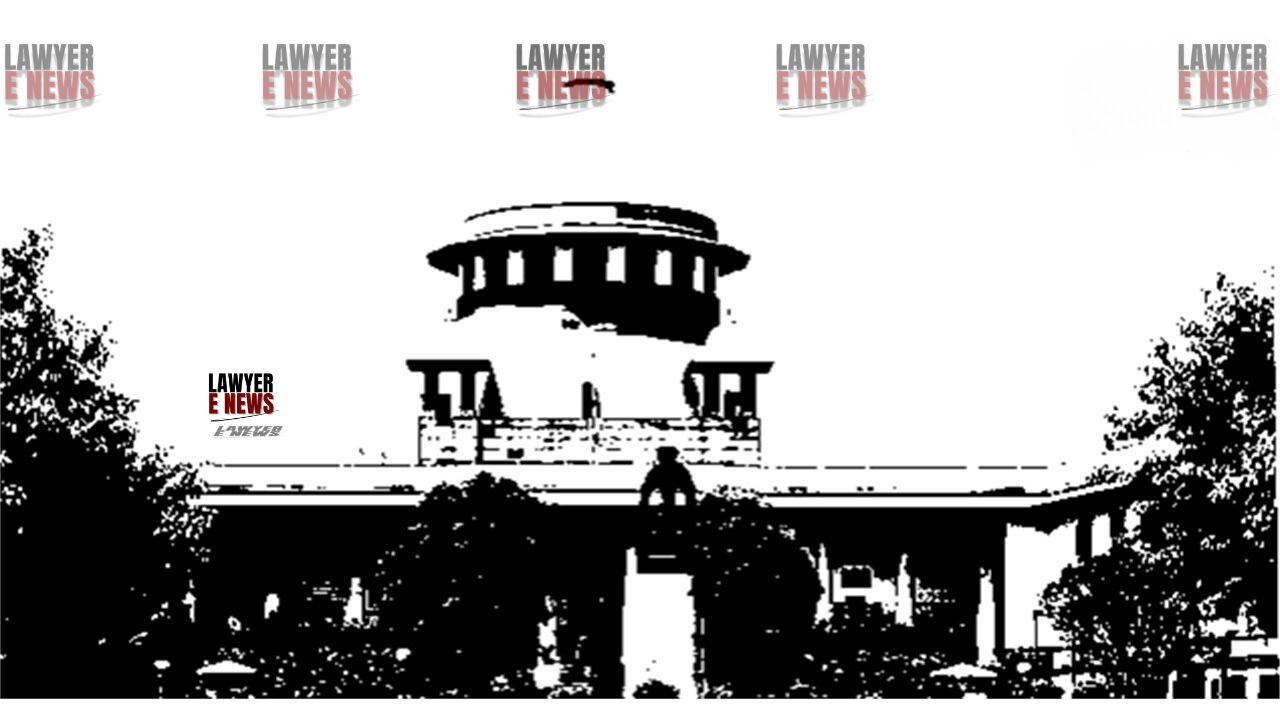-
by Admin
15 February 2026 5:35 AM



On September 17, 2024, the Supreme Court of India delivered a significant judgment in the case of Rabina Ghale & Anr. vs. Union of India & Ors. The case dealt with FIRs filed against army personnel from the 21 PARA (Special Forces) unit in Nagaland. The court quashed these FIRs, citing the requirement under the Armed Forces (Special Powers) Act (AFSPA) for prior sanction from the Central Government before initiating any legal proceedings against army personnel performing their duties.
The case arose from an incident on December 4, 2021, where personnel from the 21 PARA (SF) of the Indian Army were involved in a firing that led to the deaths of six individuals in Nagaland. The situation escalated, resulting in further casualties, including the death of an army soldier. In response to the incident, a suo moto FIR was registered by the State Crime Police Station (SCPS) under various sections of the Indian Penal Code (IPC) including Sections 302 (murder), 307 (attempt to murder), 326 (causing grievous hurt by dangerous weapons), 201 (causing disappearance of evidence), 34 (common intention), and 120-B (criminal conspiracy).
Petitioners, the wives of the army personnel involved in the operation, filed Writ Petitions (Criminal) No. 265 of 2022 and No. 250 of 2022, challenging the FIRs. They argued that their husbands were performing their duties under the legal framework provided by AFSPA and sought protection from criminal proceedings.
The key legal question before the court was whether the FIRs could proceed without prior sanction from the Central Government as required under Section 6 of AFSPA. The Act provides immunity to armed forces personnel for actions taken in the line of duty in disturbed areas, stating: "No prosecution, suit or other legal proceedings shall be instituted except with the previous sanction of the Central Government against any person in respect of anything done or purported to be done in exercise of the powers conferred by this Act."
The petitioners argued that initiating criminal proceedings against army personnel without this mandatory sanction would impair the bona fide functioning of the army, especially in areas declared disturbed under AFSPA. The court noted that the Central Government had not granted the required sanction under Section 6 of AFSPA, which led to the interim stay on proceedings in July 2022.
The Supreme Court, comprising Justice Vikram Nath and Justice Prasanna Bhalachandra Varale, referred to the interim order dated July 19, 2022, where it had stayed further proceedings in the FIRs. The court emphasized the need for adherence to AFSPA's provisions, especially Section 6, which serves as a legal shield for army personnel acting in disturbed areas.
On March 7, 2024, the Additional Solicitor General informed the court that the competent authority had declined to grant sanction under Section 6 of AFSPA on February 28, 2023. The State of Nagaland, however, sought to contest this decision, arguing for more time to file an affidavit challenging the rejection of sanction. Despite this, the court found the statutory requirement of obtaining prior sanction to be clear and mandatory.
The court stated: "We are not inclined to go into those submissions as in our view, in view of the specific bar contained in Section 6 of the AFSP Act 1958... the proceedings based on the impugned FIRs cannot continue any further."
The Supreme Court underscored that the AFSPA's legal framework is designed to protect army personnel engaged in duty in areas declared disturbed. Without the Central Government's sanction, any legal action against such personnel is prohibited. The court held that the FIRs and subsequent proceedings were fundamentally flawed due to the lack of this sanction. As a result, the interim stay granted on July 19, 2022, was made absolute, and the FIRs were quashed.
Despite quashing the FIRs, the court left the door open for potential future proceedings. It noted that if the Central Government decides to grant the required sanction under Section 6 of AFSPA at any stage, the proceedings pursuant to the impugned FIRs could be revived and carried forward according to law. The judgment explicitly stated, "We make it clear that if such a situation arises at any stage of sanction being granted under Section 6 of the AFSP Act 1958, the proceedings pursuant to the impugned FIRs would continue according to law."
The Advocate General for the State of Nagaland informed the court that the state had already filed a writ petition challenging the Central Government's refusal to grant sanction. This matter, pending before the Supreme Court, could potentially impact future proceedings if the sanction is ultimately granted.
Additionally, the court addressed the issue of potential disciplinary proceedings against the involved army personnel. The Advocate General had sought directions for the army to proceed administratively. However, the court clarified that such internal disciplinary matters fall within the discretion of the Armed Forces, and the court would not interfere. The judgment stated, "The concerned wing of the Armed Forces would be at liberty to take or not to take any disciplinary proceedings against its officers."
The Supreme Court's judgment in Rabina Ghale & Anr. vs. Union of India & Ors. reinforces the protection provided to armed forces personnel under AFSPA. By quashing the FIRs due to the absence of the required sanction from the Central Government, the court upheld the legislative intent behind AFSPA to protect soldiers operating in disturbed areas. This judgment also emphasizes the requirement of Central sanction before any prosecution of army personnel, thereby safeguarding their ability to perform their duties without the threat of immediate legal repercussions.
Date of Decision: September 17, 2024
Rabina Ghale & Anr. vs. Union of India & Ors.
